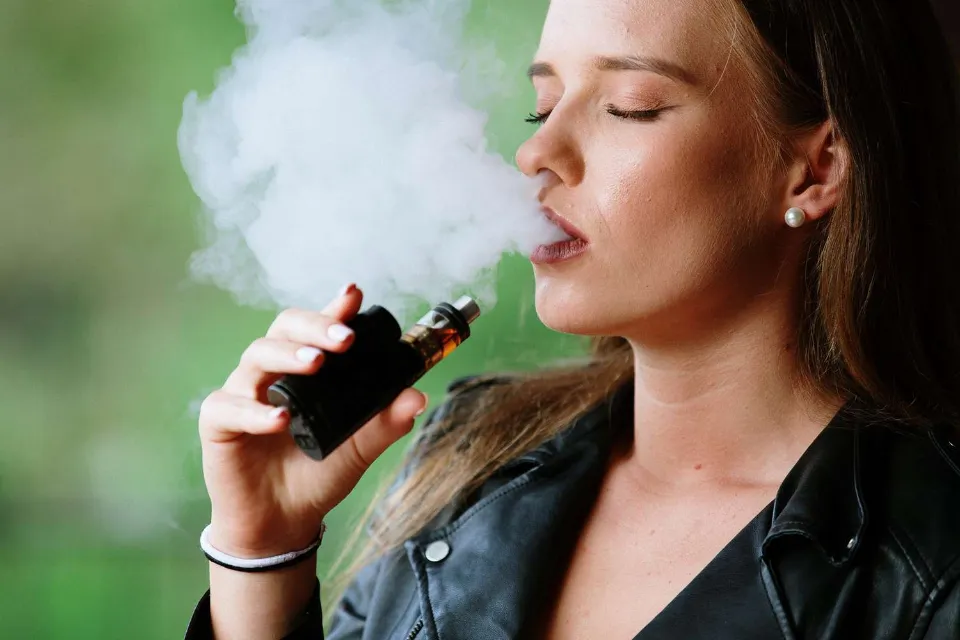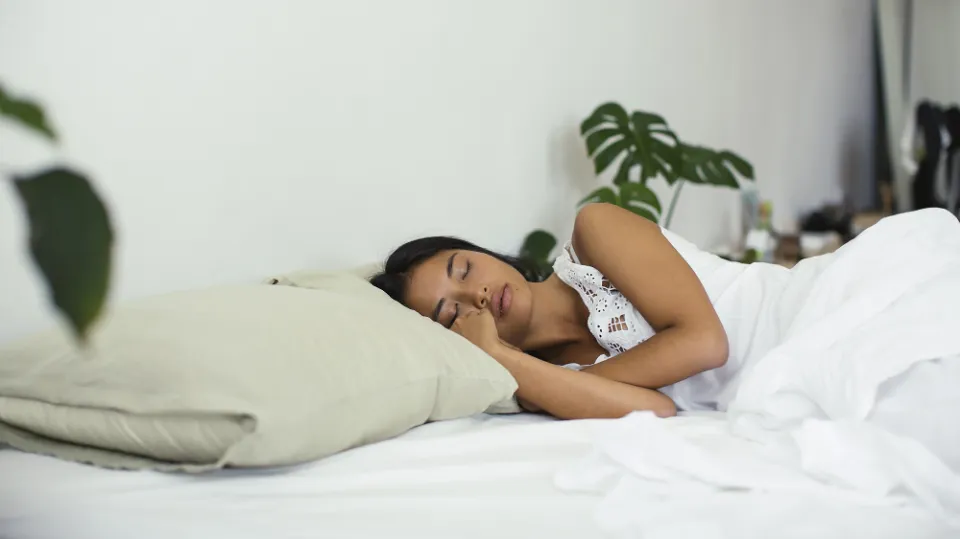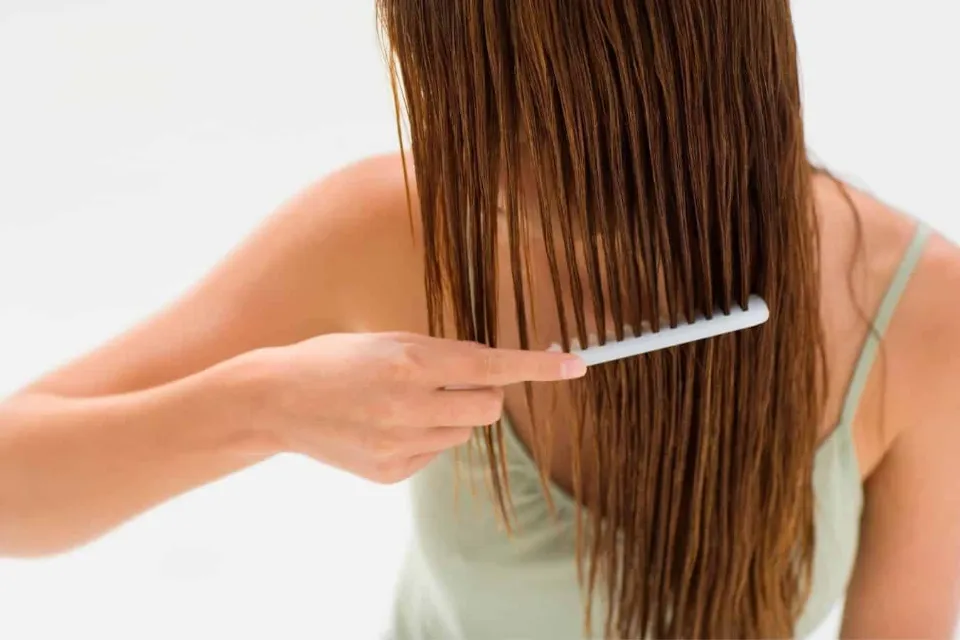If you frequently use e-cigarettes and have been observing increased hair loss, you might be wondering does vaping cause hair loss.
It’s generally believed that smokers are more likely to experience hair damage and potential loss.
In this article, we’ll address all of your inquiries regarding whether vaping results in hair loss as well as strategies to stop hair loss if you vape frequently.
What is Vaping?
It’s crucial to first comprehend what vaping is and how it functions.
Vaping involves the use of an e-cigarette, which is a battery-powered device that heats a liquid (usually containing nicotine, flavorings, and other chemicals) to produce an aerosol, which is then inhaled.
Typically, the e-cigarette liquid contains propylene glycol, vegetable glycerin, flavorings, and varying amounts of nicotine.
Does Vaping Cause Hair Loss?
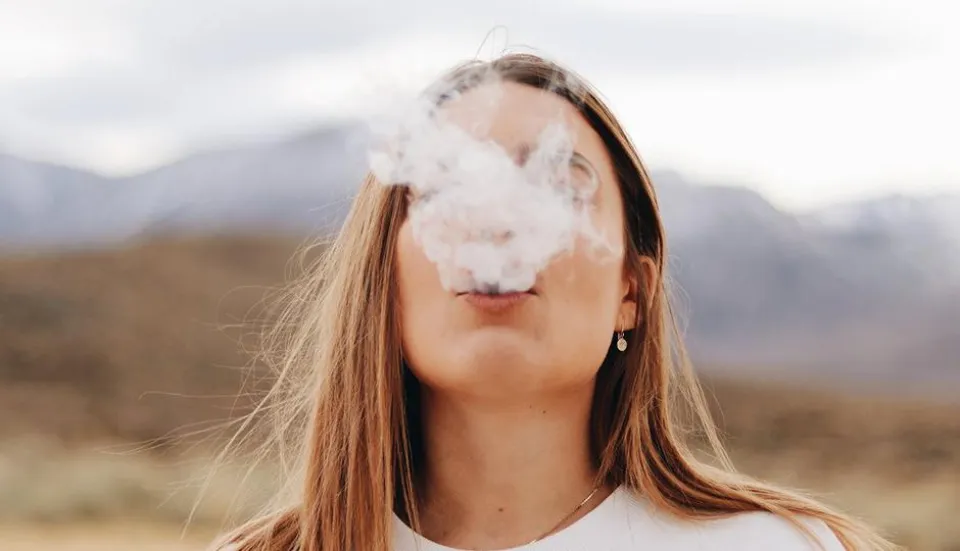
So can vaping cause hair loss?
The short answer is yes, it is true that vaping can cause hair loss, especially when done in excess. Although vaping is less harmful than smoking because there are fewer harmful chemicals in vapes, nicotine is the main ingredient and the reason they are so addictive.
With the help of e-cigarettes, you can effectively get nicotine into your lungs, where it is then transported to your blood and quickly distributed throughout your body.
Inhaling 0.5 to 15.4 milligrams of nicotine for every 15 puffs is more likely with an e-cigarette than 6 to 28 milligrams with a cigarette, even though nicotine levels vary depending on the brand.
By tightening blood vessels and obstructing circulation, nicotine ingested through vaping can result in hair loss and harm other parts of your body. This prevents nutrients in your blood from reaching your cells, especially your hair follicles, which depend on these essential nutrients to thrive and grow hair.
Nicotine from vaping prevents your hair follicles from getting the nutrients they require, which results in hair loss.
Although there aren’t many clinical studies on the long-term effects of vaping, other potential health risks related to it include heart problems, lung cancer, lung disease, and heart issues.
You Might Also Like:
- Does Adderall Cause Hair Loss?
- Can Hair Dye Cause Hair Loss?
- Does Creatine Cause Hair Loss?
- Does Dandruff Cause Hair Loss?
- Does Hard Water Cause Hair Loss?
- Does Dry Shampoo Cause Hair Loss?
Does Vaping Cause Hair Thinning?
Loss of diameter or mass from the existing hair is referred to as hair thinning.
Many people experience hair thinning on a regular basis, but they are unsure of what causes it.
One of the worst things you can do for your hair is vape nicotine because it prevents your body from breathing properly, which causes thinning hair and eventually hair loss.
If I Stop Vaping, Will My Hair Grow Back?
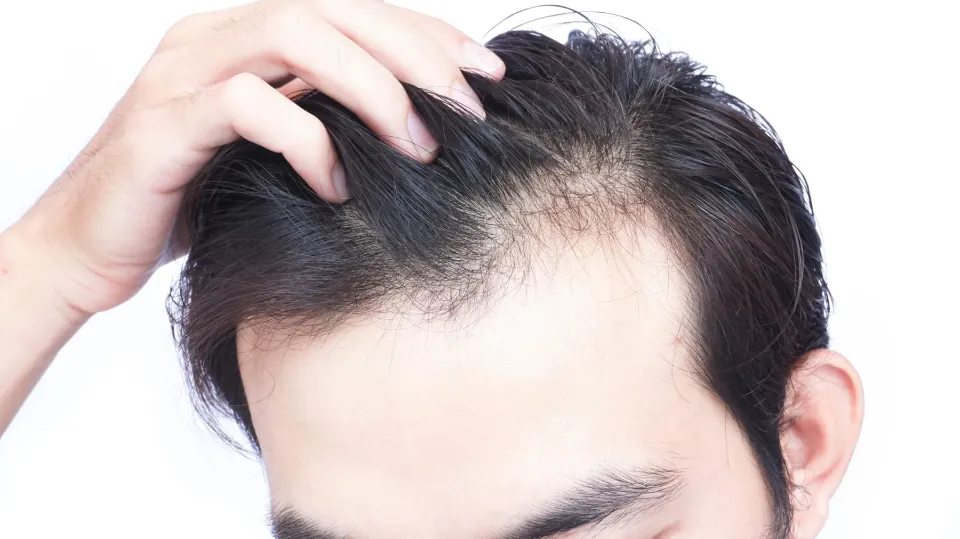
“Will my hair grow back if I stop vaping” is a common question we get. The short answer is yes, but not always. Your hair may grow back.
The follicles in your scalp start to shrink when you suddenly stop using nicotine, making it more prone to dryness and causing some bald spots. This can cause withdrawal symptoms, which can then cause hair loss.
How to Prevent Hair Loss While Vaping?
One course of action to prevent hair loss from vaping is to simply quit vaping, but given that nicotine is addictive, oftentimes quitting vaping cold turkey is difficult and takes a great deal of time, effort, and dedication.
Here are some lifestyle adjustments you can make, even if you continue to vape, to help prevent hair loss. Even if you don’t vape at all, these will still aid in preventing hair loss!
Eating a Healthy, Well-balanced Diet
While this won’t completely cancel out the side effects associated with nicotine, consuming foods with nutrients like antioxidants (compounds that can “slow down” aging in cells) will strengthen the health of your hair follicles and prevent hair loss.
Kale, blueberries, and pecans are some examples of foods high in antioxidants.
Reducing Alcohol Consumption
It’s critical that your body assimilates enough nutrients to support healthy hair growth. By harming your gut, heavy drinking combined with vaping can reverse this.
If you drink, you may want to think about reducing your intake if you want to reduce hair loss.
Reducing Sun Exposure
Hair is easily damaged and broken by too much exposure to the sun’s harmful ultraviolet rays.
On particularly sunny days, you might want to consider wearing a hat or carrying a parasol to protect your hair if you’re trying to stop hair loss.
Avoiding Heat and Other Chemical Treatments
The NIH connected increased hair loss to heat and chemical treatments like dying and perming. To lessen hair loss, think about avoiding these procedures.
Exercising Regularly
Hair loss has also been linked to stress, and regular exercise has been proven to reduce hair loss.
The National Health Service advises 75 minutes of vigorous exercise or at least 150 minutes of moderate exercise per week.
Consider using these suggestions to stop hair loss in general or hair loss brought on by vaping.
Summary: Does Vaping Cause Hair Loss
While the clinical evidence is limited, the data we have does suggest that vaping causes hair loss.
While vaping can negatively affect hair health, taking steps to support healthy hair growth, such as eating a balanced diet, getting enough sleep, avoiding stress, and exercising regularly, can help minimize the impact.
We hope you’ll take into account our advice to stop vaping from causing hair loss.
FAQs
Does Smoking Cause Hair Loss?
Smoking may cause hair loss through vasoconstriction, DNA adduct formation, damage from free radicals to the hair follicle, accelerated aging, and hormonal effects.
What Does Vaping Do to Your Skin and Hair?
Premature wrinkles and extremely dry skin are both possible. Vaping can also cause wound healing to be delayed in addition to skin aging.
What Are the Side Effects of Vaping Too Much?
Vaping frequently causes dry mouth, coughing, nausea, and headaches as side effects. The increased risk of cardiovascular disease, lung damage, lung disease, seizures, nicotine addiction, and nicotine poisoning are just a few of the severe long-term side effects of vaping.

